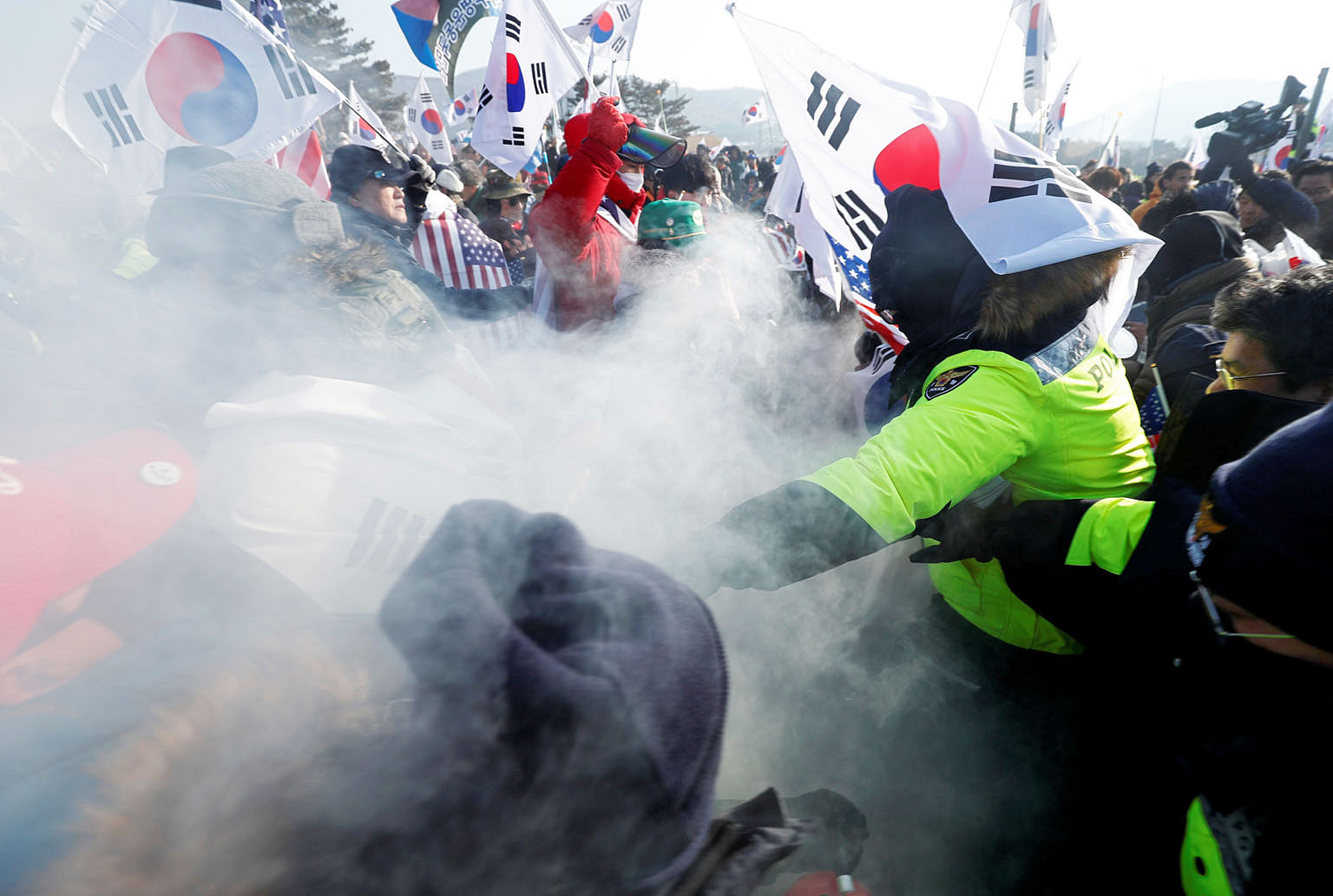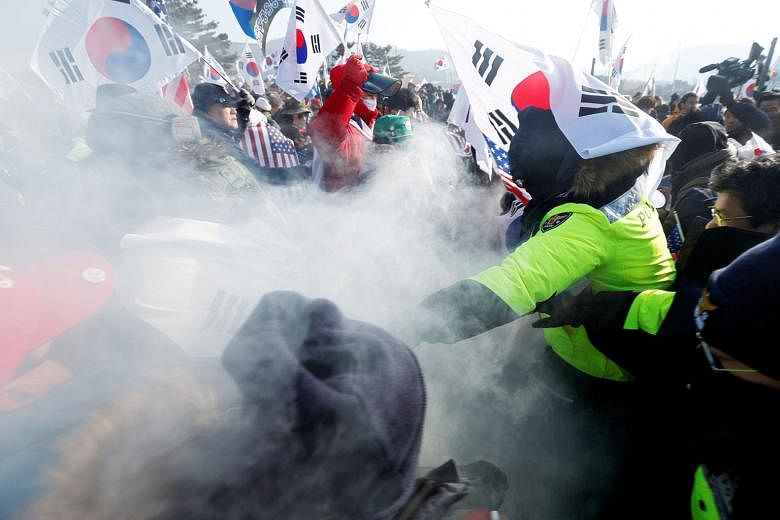Hopes for another boost for peace
Editorial
The Korea Herald, South Korea
The Pyeongchang Winter Olympics started its 17-day run with an opening ceremony yesterday, with Koreans and world citizens anticipating exciting events to be played out by top athletes on the ice and snow.
The Pyeongchang Olympics will be the largest Winter Games, drawing 2,925 participants from 92 countries, compared with the 2,858 athletes from 88 countries who attended the 2014 Sochi Olympics.
Koreans may well take pride in hosting successfully one of the world's oldest and largest international sporting events for the second time, after the Seoul Olympics in 1988. South Korea is only the eighth country in the world to have organised both the Summer and Winter Games.
The 1988 Seoul Olympics, while providing a stage for the world's top-talented athletes, left a positive geopolitical impact, as it was free from the politically motivated boycotts that marred the previous two Summer Olympics: The United States boycotted the 1980 Moscow Olympics in retaliation for the then Soviet Union's invasion of Afghanistan, to which Moscow hit back by shunning the 1984 Los Angeles Olympics.
Moreover, the participation of the then Soviet-bloc countries like the Soviet Union, East Germany and Romania and China helped ease Cold War confrontations.
It laid the ground for then South Korean President Roh Tae Woo's "Nordpolitik", which culminated in the establishment of official ties with both China and Russia in the following years. Now, 30 years later, geopolitics is playing a part in the Pyeongchang Olympics as well. This time, the biggest factor is the participation of North Korea, which rejected its invitation to the 1988 Seoul Olympics.
There will be 22 North Korean athletes competing in five sports, including 12 women's hockey players who have formed a single team with South Korean players. Hundreds more North Koreans - members of an art troupe, cheering squad, taekwondo demonstration team and journalists - have come down to celebrate the Olympics.
President Moon Jae In is also expected to receive a high-powered North Korean government delegation headed by Mr Kim Yong Nam, its nominal head of state, and Ms Kim Yo Jong, the younger sister of the North Korean leader.

The reconciliatory mood that comes on the heels of the North's nuclear and missile crisis is the consequence of Mr Moon's efforts to seize on the thaw in inter-Korean relations to bring Pyongyang to the negotiation table with Seoul and Washington, and the North's propaganda tactic to tide over the harsh international sanctions and promote a peace message.
Not all have a positive view of the North's large-scale presence in the Olympics. There are some grounds about the possibility of the latest developments causing cracks in the international alliance against the North's nuclear and missile ambitions. Nevertheless, we hope that politics do not stand in the way of the proceedings of the Olympics at least, and that the peace momentum can lead to a more meaningful development.
Shared willingness needed to extend Olympics detente
Editorial
China Daily, China
Athletes on both sides of the divide on the Korean Peninsula are to parade together under a single flag and field a joint women's ice hockey team at the Winter Olympics, which began in Pyeongchang this week.
Most impressive of all, leading Pyongyang's delegation will be the 90-year-old Kim Yong Nam, the nominal head of state of North Korea. Mr Kim's presence alone is being read as indication of Pyongyang's seriousness about the inter-Korean rapprochement, leading many to believe what happens next in Pyeongchang will go beyond what Seoul is hoping to sell as "Peace Olympics".
United States Vice-President Mike Pence's planned presence in Pyeongchang has also inspired some optimistic anticipation of a Pence-Kim meeting that many hope would be able to break the ice between Pyongyang and Washington and extend the Olympic detente.
After all, neither the White House nor Mr Pence himself has ruled out such a meeting. It would be wonderful if the detente between Pyongyang and Seoul could result in a similar thaw between Washington and Pyongyang. But it is as well to err on the side of caution, since more likely than not, the latest ease in tensions on the Korean Peninsula will not bear such significant fruit.
Although Mr Pence may not turn down a request for meeting, even talking, with Mr Kim, his priority is to ensure Pyongyang does not "hijack" the games, and that the games are not exploited to undermine Washington's "maximum pressure" strategy.
Rather than seeking to take advantage of this opportunity for direct communication, Mr Pence's visit seems intended to counter any initiatives by Pyongyang.
Washington and other stakeholders remain adamant about denuclearisation as a precursor to talks with Pyongyang, but it steadfastly refuses any suggestion of that, which is why the olive branch extended by Pyongyang is viewed by Washington as a deceptive tactic to undermine international sanctions and weaken the US-South Korea alliance. Unless both sides show sincerity by making compromises to pave the way for talks of substance, the Olympics detente may not go far beyond the games, no matter how anxious Seoul is to "make the most of it".
• The View From Asia is a compilation of articles from The Straits Times' media partner, Asia News Network, a grouping of 23 news media.

